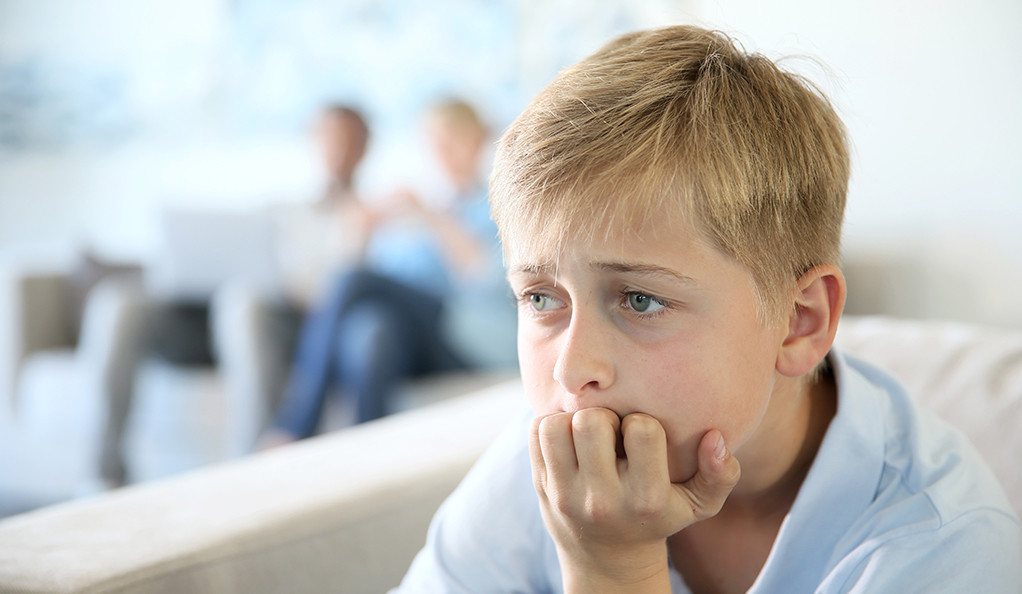What is anxiety in children
Anxiety among children can manifest itself as a real anguish characterized by a strong sense of worry, expectation of the worst, apprehension which can also emerge in non-specific and neutral situations.
Signs of Anxiety
When kids are anxious, they may not know how to put their feelings into words.
Instead, look for clues in their behaviour. Kids who are experiencing anxiety may:
- Appear more clingy than normal
- Be restless and worried
- Complain of stomachaches
- Display changes in eating and sleeping habits
- Express negative thoughts
- Get upset or angry more quickly
- Have bouts of unexplained crying
- Struggle to concentrate
- How to help children cope with anxiety and manage stress related to excessive fear of an object or situation?
The best way to help kids overcome anxiety is to teach them to deal with it as it comes up.
When kids get upset in an uncomfortable situation and parents take them out of the situation, they learn that getting upset is a good way to cope. Instead, it’s helpful for parents to let kids know that they’re going to be okay, even if they’re scared. You can’t promise your child that nothing bad will happen. But you can express confidence that they can face their fears and feel less afraid over time.
Encourage the child to face his fears and not run away from them
When we are afraid of something, our first reaction is to avoid what we fear most. However, avoiding anxious situations only increases anxiety. Teach the child, with the right empathy and standing next to him, that if he faces his fears, he will soon learn that anxiety naturally reduces itself over time.
If the child claims to be worried or scared about something, avoid replying with phrases like, “No, you don’t have to be!” or “Come on, it’s nothing.” This communicative modality does not help your child and instead risks making him feel the sensation of not feeling understood and accepted. Instead, try saying, “Yes, you actually seem worried. What is it that worries you? ” Then let him speak freely. Allowing time and space to cast out your fears helps to lessen them.
- Express positive - but realistic - expectations.
You can’t promise a child that their fears are unrealistic — that they won’t fail a test, that they’ll have fun ice skating, or that another child won’t laugh at them during show & tell. But you can express confidence that they’re going to be okay, that they will be able to manage it. And you can let them know that as they face those fears, the anxiety level will drop over time. This gives them confidence that your expectations are realistic, and that you’re not going to ask them to do something they can’t handle
- You can't be perfect
Today’s society pushes us to strive for perfection. We offer our children numerous activities and often, unwittingly, we create the expectation that they should always be good and perfect. In this way, indirectly, we send them the message that they are not allowed to express fears and weaknesses.
While it is important to encourage the child to commit, it is equally important to accept and accept their mistakes and imperfections. In this way, the child will feel “authorized” to manifest every aspect of himself and consequently to relax.
- Help your child solve problems
After accepting the child’s emotions and showing that you understand his or her experience, help the child solve the problem. This does not mean replacing him but helping him to identify possible solutions. Little by little, the child will realize that, by talking about it, a solution can be found and that everything can be dealt with. Furthermore, by postponing the fact that he himself found the solution, you will indirectly help to raise their self-esteem.
- Focus on their positive aspects
Many times anxious and stressed children can get lost in negative thoughts, self-criticism and be overly worried about the future. Instead of trying to directly encourage them to cheer themselves up (at the risk of making them stiffen further in their negative position) try to bring out the positive aspects of a situation or one of their characteristics. Ask the child to help you complete a job at home and send him back, for example, that without his help you would not have been able to finish in time.
- Reward the child's courageous behaviors
If the child is faced with his fears and faces them, reward him with a simple gesture, a praise, a hug, etc … This will help him even more to get out of the vicious circle of anxiety.
- Program relaxing activities
Children need time to relax and to be with other children. Unfortunately, sometimes even the activities planned during the week – such as sports or piano lessons – can turn into a commitment. That is why it is important to make sure that your child engages in play activities exclusively for fun, for example: playing with the child with the games that are there at home, painting or simply laughing together over and over.
- Be an example
Your kids will do what you do. So, if you avoid an anxious situation, so will them. But if you face your fears, so will them. If you take care of yourself, allow yourself the opportunity to express your weaknesses and at the same time find the positive aspects of everything, you will take care of his and your well-being.

Dr. Letizia Mugnai
Clinical Psychologist | Family & Couple Psychotherapist



